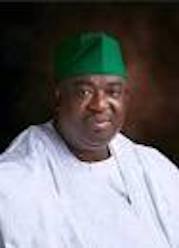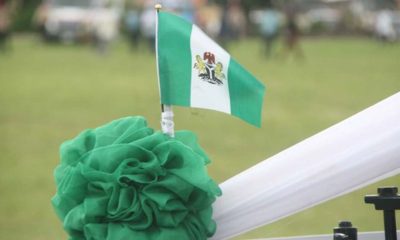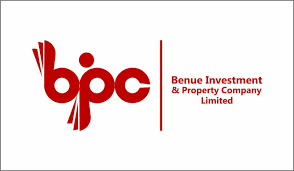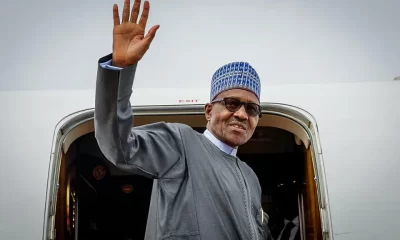NEWS
Buhari’s 60th Independence Anniversary Speech

INDEPENDENCE DAY ADDRESS BY HIS EXCELLENCY, MUHAMMADU BUHARI, PRESIDENT OF THE FEDERAL REPUBLIC OF NIGERIA ON THE OCCASION OF NIGERIA’S SIXTIETH INDEPENDENCE ANNIVERSARY, THURSDAY 1ST OCTOBER 2020
Fellow Nigerians
I speak to you today as your President and fellow citizen on this epoch occasion of our country’s 60th independence Anniversary.
As President, I wish to renew my appreciation to Nigerians for entrusting me with your hopes and aspirations for a better and greater Nigeria.2. Today, it is my unique privilege to re-commit myself to the service of this great country of great people with profound diversities and opportunities.
We are bound by destiny to be the largest and greatest black nation on earth.3. At this stage in our nationhood it is important that we reflect how we got here to enable us work TOGETHER to get to where we aspire to be as a strong indivisible nation, united in hope and equal in opportunity.
4. On October 1st 1960 when Prime Minister Alhaji Abubakar Tafawa Balewa received the constitutional instruments symbolizing Nigeria’s independence, he expressed his wish that having acquired our rightful status as an independent sovereign nation, history would record that the building of our nation proceeded at the wisest pace.
5. This optimism was anchored on the peaceful planning, full and open consultation and harmonious cooperation with the different groups which culminated in Nigeria emerging as a country without bitterness and bloodshed.
6. Our founding fathers understood the imperative of structuring a National identity using the power of the state and worked towards unification of Nigerians in a politically stable and viable entity.
7. That philosophy guided the foundation that was laid for our young nation of 45 million people with an urban population of approximately 7million occupying an area of 910,768 square kilometers. These demographics led to development challenges for which major efforts were made to overcome.
8. Today, we grapple with multiple challenges with a population exceeding 200million occupying the same land mass but 52% residing in urban areas.
9. Sixty years of nationhood provides an opportunity to ask ourselves questions on the extent to which we have sustained the aspirations of our founding fathers. Where did we do the right things? Are we on course? If not where did we stray and how can we remedy and retrace our steps?
10. Upon attaining independence, Nigeria’s growth trajectory was anchored on policies and programmes that positively impacted on all sectors of the economy. However, this journey was cut short by the 30-months of civil war.
11. We came out of the civil war with a focus on reconstruction, rehabilitation and reconciliation that enabled the country to put in place world class development structures and a strengthened public service that well served the government. This positive trajectory continued with a return to democratic government which was truncated by another round of military rule.
12. For a cumulative 29 of our 60 years existence as a nation, we have been under military rule.
13. My summary of our journey so far as a nation is necessary to appropriately chart where we need to go and how to get there TOGETHER.
14. Today, I am aware that our economy along with every single economy in the world is in crisis. We still face security challenges in parts of the country, while our society suffers from a high loss of moral rectitude which is driven by unbridled craving for political control.
15. An underlying cause of most of the problems we have faced as a nation is our consistent harping on artificially contrived fault-lines that we have harboured and allowed unnecessarily to fester.
16. In addition, institutions such as civil service, police, the judiciary, the military all suffered from a general decline.
17. We need to begin a sincere process of national healing and this anniversary presents a genuine opportunity to eliminate old and outworn perceptions that are always put to test in the lie they always are.
18. The stereotype of thinking of ourselves as coming from one part of the country before seeing ourselves as Nigerians is a key starting point to project us on the road to our deserved nation’s evolution and integration.
19. To start this healing process, we are already blessed with the most important asset any nation requires for such – OUR PEOPLE – and this has manifested globally in the exploits of Nigerians in many fields.
20. It has been demonstrated time and time again that Nigerians in the diaspora frequently excel in science, technology, medicine, sports, arts and many other fields.
21. Similarly, the creativity, ingenuity and resourcefulness of the Nigerian at home have resulted in globally recognized endeavours.
22. I am convinced that if we pursue our aspirations TOGETHER we would be able to achieve whatever we desire. That informed our adopting the theme TOGETHER to mark this epochal event.
23. Together we can change our condition for the better and more importantly, together we can do much more for ourselves and for our country.
24. I chose the path of self-reflection because this is what I do on a daily basis and I must confess that at most times, I always felt the need for a collective reflection as I know that the foundation for a solid future which this administration is laying can only be sustainable if there is a collective commitment by Nigerians.
25. Nigeria is not a country for Mr. President, any ruling or opposition party but a country for all of us and we must play our part, irrespective of challenges we face, to make this country what we desire.
26. To achieve this, we must focus our minds, TOGETHER as a people, on ways of resolving the identified critical challenges that underlie our present state. These include:
a. Evolving and sustaining a democratic culture that leaves power in the hands of the people;
b. Supporting the enthronement of the rule of law, demanding accountability of elected representatives and contributing to good governance;
c. Increasing our commitment to peaceful co-existence in a peaceful, secure and united Nigeria;
d. Harnessing and Optimizing our tremendous human and natural resources to attain our goal of being in the top twenty economies of the world and in the process;
e. Lifting 100 million Nigerians out of poverty in 10 years;
f. Strengthening institutions to make them stronger in protecting National Interests; and
g. Imbibing tolerance in diversity.
27. I am a firm believer in transparent, free, fair and credible elections as has been demonstrated during my period as a democratically elected President.
28. The recent build-up and eventual outcome of the Edo State elections should encourage Nigerians that it is my commitment to bequeath to this country processes and procedures that would guarantee that the people’s votes count.
29. The problems with our electoral process are mainly human induced as desperate desire for power leads to desperate attempts to gain power and office.
30. Democracy, the world over and as I am pursuing in Nigeria, recognizes the power of the people. However, if some constituencies choose to bargain off their power, they should be prepared for denial of their rights.
31. This call is made more urgent if we realise that even after a transparent, free, fair and credible election, desperation leads to compromising the judiciary to upturn legitimate decisions of the people.
32. It is necessary to, therefore support the enthronement of the rule of law by avoiding actions which compromise the judiciary.
33. Fellow Nigerians, our history has shown that we are a people that have the capacity to live peacefully with one another.
34. As a government, we remain committed to our constitutional oath of securing the lives and properties of the citizenry. I, however, call on the citizenry to also support government by providing the necessary community level intelligence in addressing these challenges.
35. In moving forward together, it is important to strengthen our economy to provide sustainable means of livelihood for as many Nigerians as possible so as to eradicate absolute poverty from our midst.
36. I want to re-emphasize my dedication and commitment, a dedication and commitment that propelled my public service career and informed my quest to continually seek for an opportunity to improve the lives of Nigerians, set the country on the path of prosperity and lead the country to a better future.
37. This administration has been focused on rebuilding and laying the foundations for a sustainable Nigeria. Of course, we have met and are still meeting the challenges inherent in any rebuilding initiative – more so that of a nation like Nigeria that has undergone avoidable levels of deprivation – but can be surmounted if we all work together.
38. I wish to re-iterate that our people and our spirit of excellence remains our most important asset.
39. In this wise, the need to return to our age-old ethical and high moral values would be necessary and this informed my launching of the National Ethics and Integrity Policy on Monday 28th September, 2020.
40. The policy would not implement itself and the first contact of the visibility of its implementation is the Public Service whose on-going reforms would be expected to be sustainable and give a radical re-direction in providing services to all Nigerians.
41. Fellow Nigerians, in addition to public health challenges of working to contain the spread of the Coronavirus, we have suffered a significant drop in our foreign exchange earnings and internal revenues due to 40 per cent drop in oil prices and steep drop in economic activities, leading to a 60 per cent drop in government revenue.
42. Our government is grappling with the dual challenge of saving lives and livelihoods in face of drastically reduced resources.
43. In this regard, sustaining the level of petroleum prices is no longer possible. The government, since coming into office has recognized the economic argument for adjusting the price of petroleum. But the social argument about the knock-on effect of any adjustment weighed heavily with the government.
44. Accordingly, in the last three years, we have introduced unprecedented measures in support of the economy and to the weakest members of our society in the shape of:
a. Tradermoni
b. Farmermoni
c. School Feeding Programme
d. Job creation efforts
e. Agricultural intervention programmes
45. No government in the past did what we are doing with such scarce resources. We have managed to keep things going in spite of the disproportionate spending on security. Those in the previous Governments from 1999 – 2015 who presided over the near destruction of the country have now the impudence to attempt to criticize our efforts.
46. In the circumstances, a responsible government must face realities and take tough decisions.
47. Petroleum prices in Nigeria are to be adjusted. We sell now at N161 per litre. A comparison with our neighbours will illustrate the point;
a. Chad which is an oil producing country charges N362 per litre
b. Niger, also an oil producing country sells 1 litre at N346.
c. In Ghana, another oil producing country, petroleum pump price is N326 per litre.
48. Further afield, Egypt charges N211 per litre. Saudi Arabia charges N168 per litre. It makes no sense for oil to be cheaper in Nigeria than in Saudi Arabia.
49. Fellow Nigerians, to achieve the great country we desire, we need to solidify our strength, increase our commitment and encourage ourselves to do that which is right and proper even when no one is watching.
50. Fellow Nigerians, let us collectively resolve to continue our journey beyond the sixty years on the clear understanding that as a nation we are greater together than being smaller units of nationalities. By the special grace of God we shall come through any transient challenges.
51. It is my sincere hope that by the end of this anniversary on September 30th 2021, we will all be proud of taking this individual and collective self-assessment for the progress of our great Nation.
Long Live the Federal Republic of Nigeria.
God Bless us all. Thank you.
NEWS
Eight Students Die, Three Injure in Jos Road Crash

From Jude Dangwam, Jos
The Vice Chancellor of the University of Jos, Prof. Ishaya Tanko has confirmed the sad death of 8 students of the University to a road crash involving their Toyota bus with a truck in the metropolitan city of Jos.
He disclosed that one of the students was being prepared for surgery in the early hours of Thursday at the Jos University Teaching Hospital while others were receiving medication at the Bingham Teaching Hospital.
The Federal Road Safety Corps (FRSC) Plateau State Command disclosed that the accident occurred opposite Unity Bank Zaria Road, Jos, at around 2:30 am.
The Plateau State Sector Commander of the Corps, Olajide Mogaji explained that seven people lost their lives on the spot, while another victim died in hospital, bringing the total number of fatalities to eight.
According to the Command’s statement, the crash involved a trailer and a bus, which was carrying eleven passengers, all male students of the University of Jos, opposite Unity Bank Zaria Road, Jos, at around 2:30 am.
Mogaji said eyewitness accounts revealed to the corps emergency teams that the bus was speeding and engaged in wrongful overtaking, leading to the loss of control and the crash.
The Sector Commander has appealed to drivers to avoid night trips, excessive speed, and dangerous driving, saying, “The government needs you alive, and wants you to live life to the fullest in this festive season and beyond.”
The FRSC noted that the incident is still under investigation, while urging the public to report crashes or road emergencies to their toll-free emergency number 122 at all times for prompt responses.
The victims were said to have been coming back from a welcome special party for new students when the unfortunate incident occurred with the vehicle carrying the male students while the other vehicle carrying the female students escaped the tragedy.

UNICEF Hails Bayelsa as Champion of Primary Healthcare Devt in Nigeria
From Mike Tayese, Yenagoa
The United Nations Children’s Fund (UNICEF) has commended the Bayelsa State Government for its deliberate efforts at improving primary healthcare delivery, especially in the area of immunization in recent years.
The Country Representative of UNICEF in Nigeria, Wafaa Saeed, gave the commendation, on Wednesday, when she led a delegation on a courtesy visit to Government House, Yenagoa.
Saeed said what she saw during her visit to some health facilities and her random interactions with some mothers in the state, corroborated the positive reports UNICEF has been receiving about Bayelsa in terms of immunization.
The special UN envoy, who described Bayelsa as champion of healthcare delivery and a shining spot in the country, noted that the state has achieved an impressive performance in its immunization indices from 2021 to date.
She attributed the improvement in the health indicators of the state to purposeful leadership, commitment and accountability being provided by the present administration.
While assuring the Bayelsa of UNICEF’s readiness for collaboration to improve nutrition for children as well as unlock resources for healthcare development in the state, the Country Rep, however, urged the Governor Douye Diri-led administration to sustain its efforts in the health sector.
She said, “We are really impressed with what Bayelsa is doing… Bayelsa State has also committed its financing of immunization campaigns from the state budget, and a special one (immunization) in-between.
“Also there is a monthly allowance and support you have continued to give from GAVI. These are some of the things that have really increased the number of immunized children and improved the performance of the state.
“In 2021, the number of children not immunized in Bayelsa was 71 percent; that means seven out of ten kids were not immunized. But between then and now, there is a big difference due to the leadership, commitment and accountability we are seeing in Bayelsa State.
“You have been a champion of primary healthcare and a champion of immunization. And I really look to have Bayelsa not only a champion of states in Nigeria but in our continent and the globe.”
In a response, Governor Douye Diri represented by his deputy, Senator Lawrence Ewhrudjakpo, reaffirmed the determination of his administration to prioritize investments in the health sector.
He said plans were underway to review the state primary healthcare board law with a view to not only sustaining the extant primary healthcare funding model but also expanding it through effective private sector contributions, especially from corporate organizations operating in the state.
Diri thanked the Country Rep, Ms Wafaa Saeed, for her kind words of encouragement and also acknowledged the support of UNICEF, WHO, Bill Gate, Dangote Foundation and other development partners, noting that Bayelsa could not have recorded its present achievements in the health sector without their collaboration.
His words: “We also want to thank you profusely for supporting our programme. We thank UNICEF, the WHO, Bill Gate Foundation, Dangote Foundation and others for your support. We really appreciate what you have done for our state.
“As a government, we know where we are going. A man who knows where he is going cannot be misled. We are focused and will continue to redouble our efforts in the health sector.
“You talked about sustainability. That is very important to us, and so, we are looking at the principal law, which is the Primary Healthcare Development Board Law. We are looking at some areas of that law to bind the hands of whoever that comes after us.
“That is to ensure that even if the administration after us will not have the motivation and passion to provide leadership for primary healthcare like the present governor is doing, the law will compel them to do so.”
The UNICEF Country Representative was accompanied on the visit by the Chief of Field Service, Judith Leville, UNICEF Health Consultant, Dr. Makio Perekeme, the Chief Field Officer, Anselm Audu and a health specialist, Eghe Abe, among others.

Mutfwang Pledges Support for Minister of Defence in Fight against Insecurity
From Jude Dangwam, Jos
Plateau State Governor, Caleb Mutfwang, has paid a courtesy visit to the newly appointed Minister of Defence, Gen. Christopher Gwabin Musa (Rtd), assuring him of his total and unwavering support in the collective effort to defeat insecurity in Plateau State and across Nigeria.
The Director of Press and Public Affairs to the Governor, Gyang Bere on Thursday disclosed that the Governor has expressed delight over Gen.
Musa’s appointment, describing it as a “strategic and timely decision” in confronting the country’s intricate and evolving security challenges.Mutfwang noted that the Minister’s vast experience and proven professionalism would significantly strengthen ongoing national security interventions.
“We must now focus on finding solutions to the challenges confronting us. Whatever has happened in the past should not deter us. The time has come for all of us to join hands and holistically address our security concerns,” Mutfwang emphasized.
The Governor reiterated his support for the establishment of State Police, acknowledging concerns about possible abuses, but stressing that the nation must collectively develop safeguards and ensure operational efficiency.
Gen. Christopher Musa expressed gratitude for the Governor’s visit, assuring him of a robust and productive collaboration in addressing security concerns in Plateau State and the country at large.
He commended Governor Mutfwang for hosting the Plateau Unity Christmas Carols and Praise Festival, describing it as a unifying initiative.





























